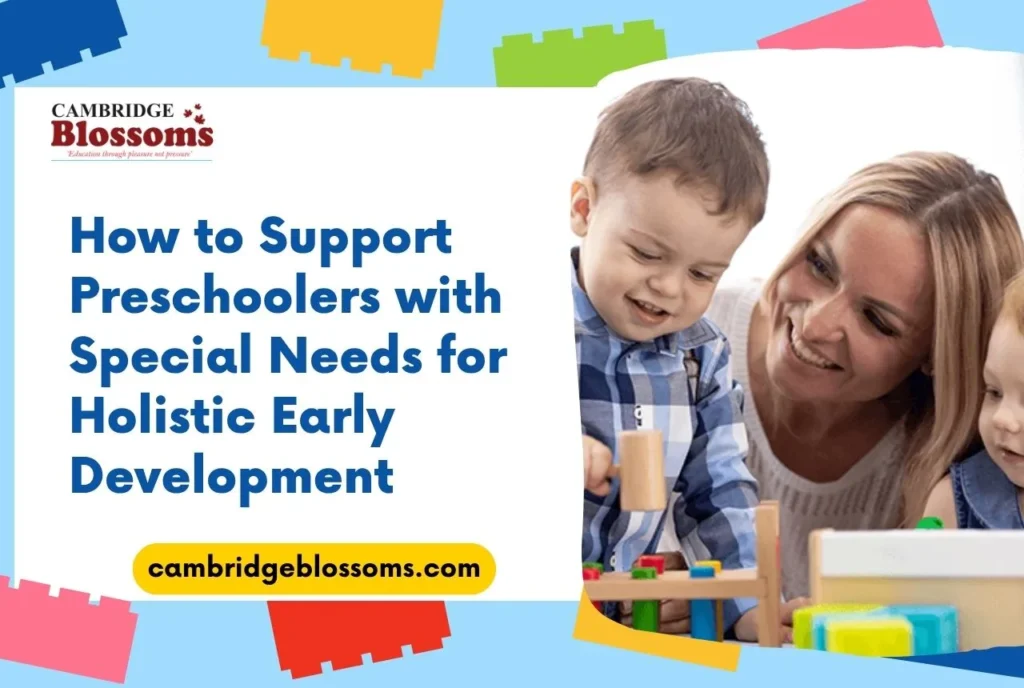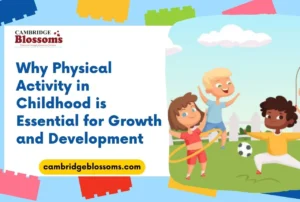How to support preschoolers with special needs effectively is crucial for shaping their future. According to global estimates, about 6–10% of children under the age of 6 face developmental delays or disabilities. With the right support, these children can thrive socially, emotionally, and academically.
Providing structured, inclusive, and compassionate environments from the start can significantly enhance their developmental outcomes. This article explores how to support preschoolers with special needs through practical, research-backed strategies.
Designed for parents, caregivers, and educators, it aims to equip readers with effective tools to create a nurturing and empowering foundation for every child.
Understanding How to Support Preschoolers with Special Needs
Special needs in preschoolers can encompass developmental delays, physical disabilities, speech and language impairments, sensory issues, or behavioral and emotional challenges. Common conditions include autism spectrum disorder (ASD), ADHD, Down syndrome, and speech delays.
Early identification is key to ensuring timely intervention. Assessments conducted by developmental pediatricians, speech therapists, and psychologists help in understanding a child’s unique needs. Once identified, individualized plans should be created to address those specific requirements.

Support is most effective when it is collaborative. Parents, educators, therapists, and caregivers must work as a cohesive team to ensure consistent support across home and school environments. This shared effort fosters a sense of security and accelerates developmental progress.
5 Essential Ways to Support Preschoolers with Special Needs
1. Creating a Structured and Inclusive Environment
Understanding how to support preschoolers with special needs begins with creating structure that helps them feel safe and confident. Establishing consistent routines and clear daily schedules reduces anxiety and builds predictability. Sensory-friendly spaces with calming zones and tactile materials offer comfort and engagement.
Classrooms should be arranged to minimize noise and distractions while ensuring accessibility for children with mobility challenges. Visual supports like charts, symbols, and picture schedules enhance comprehension and participation.
2. Developing Effective Communication Strategies
Many preschoolers with special needs face communication barriers. Alternative methods such as sign language, communication boards, or speech-generating devices can help them express thoughts and needs. Caregivers should use simple language, repetition, and visual aids to support understanding.
Most importantly, giving children time and space to communicate encourages confidence. Speech therapists can introduce customized techniques that suit individual speech development levels.
3. Building Strong Support Networks
Support begins with teamwork. Collaborating with parents, therapists, and educators ensures consistent care. Regular updates between home and school build trust and understanding. Community resources, such as local support groups or government programs, offer additional aid.
Schools should prioritize team-based intervention approaches and ensure all staff are trained in inclusive practices. Together, these efforts create a holistic support system for the child.
4. Fostering Social Skills Development
Developing social skills is essential for early childhood development. Educators can facilitate structured playdates, group activities, and peer mentoring programs to promote interaction. Direct teaching of social behaviors—like sharing or greeting others—through modeling and role-play helps children learn in safe contexts.
Social stories that illustrate common situations can also improve understanding. Accommodating sensory sensitivities ensures these interactions remain positive and non-overwhelming.
5. Implementing Positive Behavior Support Strategies
Challenging behaviors often stem from unmet needs or communication difficulties. Recognizing behavior as a form of communication is the first step. Educators who understand how to support preschoolers with special needs should identify potential triggers and apply proactive strategies like advance warnings for transitions.
Teaching alternative behaviors, emotional regulation skills, and using tools such as visual schedules can reduce frustration. Positive reinforcement, praise, and rewards for desired behaviors encourage consistent improvement.
Individualized Education Plans and Assessment
Individualized Education Plans (IEPs) are crucial in tailoring education to each child’s strengths and challenges. An IEP includes specific goals, intervention strategies, and assessment methods. Regular monitoring—through observations, progress notes, and checklists—helps gauge effectiveness and inform necessary adjustments.
Understanding how to support preschoolers with special needs also involves using digital tools and portfolios to document development and share insights among caregivers and specialists. Importantly, parents should be actively involved in the assessment and planning process. Their insights and experiences enrich the child’s educational journey and strengthen collaboration.
Self-Care for Parents and Educators
Caring for children with special needs can be deeply rewarding, but it also demands emotional resilience. Parents and educators must prioritize their well-being through stress-relief activities, mindfulness, and healthy boundaries.

Building support networks—whether online or in-person—offers shared understanding and advice. Accessing respite care services can also provide essential breaks. Remember, a healthy caregiver is better equipped to provide consistent and compassionate care.
Cambridge Blossoms: Leading Special Needs Education in Guwahati
Cambridge Blossoms stands as one of Guwahati’s premier preschools, known for its inclusive philosophy and dedication to children with special needs. Their approach combines evidence-based practices with a nurturing environment, ensuring every child receives personalized attention.
The staff at Cambridge Blossoms is highly trained in special education, speech therapy, and early childhood development. The school features sensory rooms, accessible infrastructure, and customized learning modules tailored for different needs. Numerous families have reported remarkable progress in their children’s communication, behavior, and learning through the school’s efforts.
To know more about admission, specialized services, or book a consultation, visit Cambridge Blossoms today and take the first step toward a brighter future for your child.
Professional Development and Resources
Continuous learning ensures caregivers stay informed about evolving strategies and best practices. Educators can benefit from workshops, certifications, and online courses in inclusive education, autism support, or behavior management.
Useful resources include books like The Out-of-Sync Child, websites such as Understood.org and Zero to Three, and professional organizations like NAEYC and RCI (India). Local and digital communities provide emotional support and practical advice.
Staying updated with the latest research in special education (as of May 2025) empowers caregivers to make informed, compassionate decisions.
Moving Forward with Inclusive Support
Supporting preschoolers with special needs is a collective effort rooted in empathy, understanding, and consistent adaptation. From structured environments to personalized education plans, every strategy plays a vital role in unlocking each child’s potential.
Individualized approaches, strong support systems, and ongoing professional development are the cornerstones of inclusive early education.
Let us continue building spaces where all children—regardless of ability—feel seen, valued, and empowered to grow. Because when we support their beginnings, we shape their futures.




